India Toy Exports Decline: GTRI Report
By Rediff Money Desk, New Delhi May 07, 2024 15:57
India's toy exports fell to USD 152.34 million in 2023-24, despite quality control measures. GTRI suggests a comprehensive strategy for growth, including local production and attracting global brands.
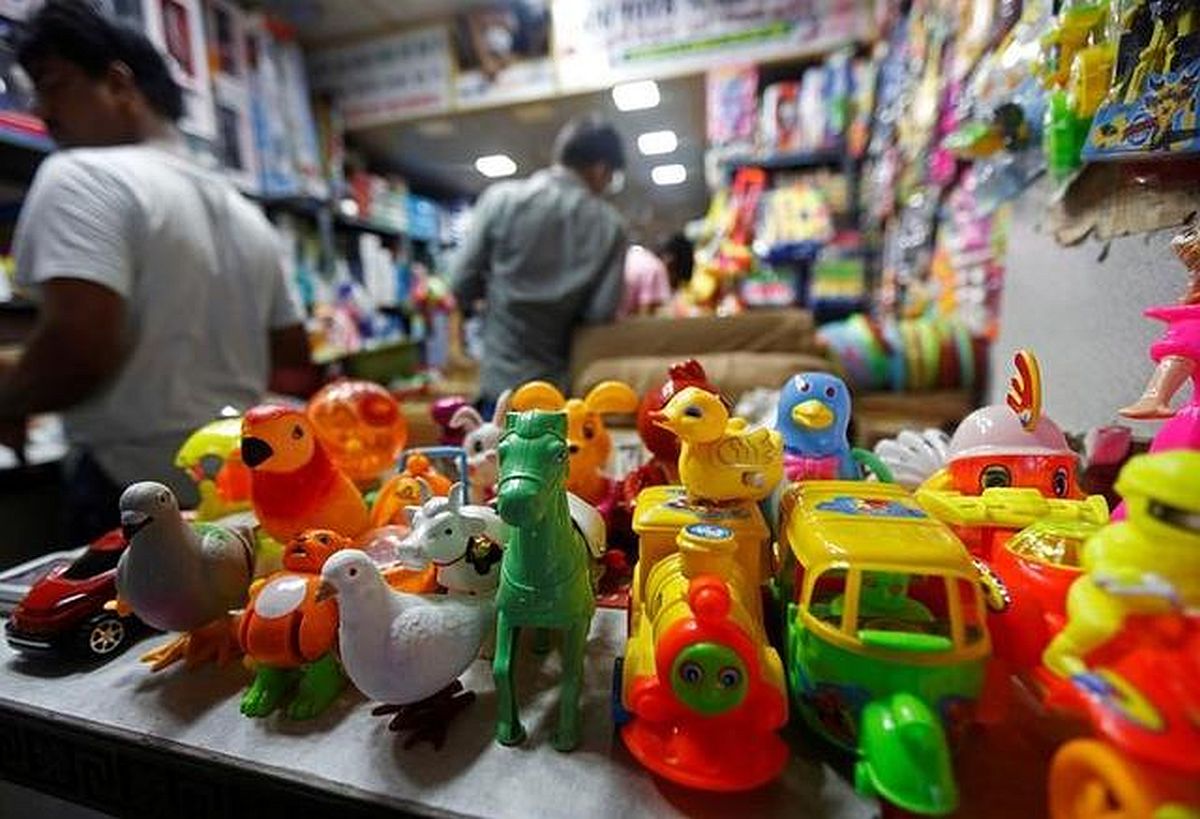
New Delhi, May 7 (PTI) The country's toy exports declined marginally to USD 152.34 million in 2023-24 from USD 153.89 million in the previous financial year, according to a report by economic think tank GTRI.
The Global Trade Research Initiative (GTRI) said that India's toy exports did not benefit much from the mandatory quality control orders.
It said that while the domestic measures were primarily aimed at boosting local industry and ensuring safety, they did not significantly enhance India's toy exports.
"From FY'2020 to FY'2022, exports increased modestly from USD 129.6 million to USD 177 million. However, by FY'2024, exports decreased to USD 152.3 million," the report said.
Imports, however, increased to USD 64.92 million in 2023-24 from USD 62.37 million in 2022-23.
GTRI Founder Ajay Srivastava said that the QCO checked substandard imports from China but did not result in higher exports from India.
Though India has taken decisive steps since 2020 to curb the inflow of substandard toy imports, especially from China, and strengthen the domestic toy industry, but "India needs to take more comprehensive approach for development of the industry," he said.
The report proposes a comprehensive strategy aimed at developing India's toy industry and boosting exports.
He suggested steps such as developing a robust domestic ecosystem, encouraging global toy brands to manufacture in India, learning from China, and localise production of key inputs.
"Invest in research and development to foster innovation in toy design and functionality, positioning Indian toys competitively on the global stage. Strengthen partnerships between toy manufacturers and design institutes to continuously introduce innovative products," Srivastava said.
The report recommended setting up specialized toy manufacturing hubs to reduce costs and increase efficiency; modernising traditional Indian toys while preserving their cultural value to create unique products.
"Support small and medium enterprises in leveraging digital marketing and promote Indian toys at international fairs to establish global connections," it said.
It also asked India to invite international toy manufacturers who operate in China, such as Hasbro, Mattel, Lego, Spin Master, and MGA Entertainment, to consider setting up production facilities in India.
This move could help shift part of the global toy production market to India.
Further, it asked to reduce dependency on imports by developing local production capabilities for critical toy-making materials and components, such as glass eyes for dolls, beads, imitation stones, various types of plastics, electric motors, and remote control apparatus.
This step will decrease costs and enhance the self-sufficiency of the Indian toy industry, the GTRI said.
"Imports of inputs used for making toys is much higher than import of finished toys. For example, we imported glass eyes for dolls or other toys, beads and imitation stones of value USD 137.2 million in FY'2024," Srivastava said.
He added that India needs to make separate strategies for each group of toys such as plush toys like stuffed animals (world trade is about USD 7 billion); educational toys (world trade is about USD 6 billion); construction toys like LEGO (USD 10 billion); action figures and dolls (USD 10 billion); electronics (USD 15 billion); board games and puzzles (USD 9 billion); and outdoor and sports toys (USD 5 billion).
In 2022, the global market imported toys valued at about USD 60.3 billion.
Dominating this market, China exported toys worth USD 48.3 billion, securing an 80 per cent share of the global exports.
Other significant contributors to the global toy export market include the Czech Republic with exports of USD 3.2 billion, the European Union with USD 2.7 billion, Vietnam with USD 1.7 billion, and Hong Kong with USD 1.1 billion.
In contrast, India's share in the global toy export market is minimal, totalling USD 167 million, which represents only 0.3 per cent of the global exports, ranking it 27th, the report said.
On the import side, India ranks even lower, at 61st, with toy imports amounting to USD 60 million.
The largest importer of toys is the USA, which alone procured toys worth USD 22.2 billion. It is followed by the European Union (USD 9 billion), Japan (USD 2.8 billion), and Canada (USD 1.6 billion).
India raised import duties on toys beginning in February 2020. The basic customs duty was increased from 20 per cent to 60 per cent and then to 70 per cent in July 2021.
Implemented from January 2021, the QCO mandates that all toys sold in India, whether domestically produced or imported, must comply with specific Indian Standards for safety.
The Global Trade Research Initiative (GTRI) said that India's toy exports did not benefit much from the mandatory quality control orders.
It said that while the domestic measures were primarily aimed at boosting local industry and ensuring safety, they did not significantly enhance India's toy exports.
"From FY'2020 to FY'2022, exports increased modestly from USD 129.6 million to USD 177 million. However, by FY'2024, exports decreased to USD 152.3 million," the report said.
Imports, however, increased to USD 64.92 million in 2023-24 from USD 62.37 million in 2022-23.
GTRI Founder Ajay Srivastava said that the QCO checked substandard imports from China but did not result in higher exports from India.
Though India has taken decisive steps since 2020 to curb the inflow of substandard toy imports, especially from China, and strengthen the domestic toy industry, but "India needs to take more comprehensive approach for development of the industry," he said.
The report proposes a comprehensive strategy aimed at developing India's toy industry and boosting exports.
He suggested steps such as developing a robust domestic ecosystem, encouraging global toy brands to manufacture in India, learning from China, and localise production of key inputs.
"Invest in research and development to foster innovation in toy design and functionality, positioning Indian toys competitively on the global stage. Strengthen partnerships between toy manufacturers and design institutes to continuously introduce innovative products," Srivastava said.
The report recommended setting up specialized toy manufacturing hubs to reduce costs and increase efficiency; modernising traditional Indian toys while preserving their cultural value to create unique products.
"Support small and medium enterprises in leveraging digital marketing and promote Indian toys at international fairs to establish global connections," it said.
It also asked India to invite international toy manufacturers who operate in China, such as Hasbro, Mattel, Lego, Spin Master, and MGA Entertainment, to consider setting up production facilities in India.
This move could help shift part of the global toy production market to India.
Further, it asked to reduce dependency on imports by developing local production capabilities for critical toy-making materials and components, such as glass eyes for dolls, beads, imitation stones, various types of plastics, electric motors, and remote control apparatus.
This step will decrease costs and enhance the self-sufficiency of the Indian toy industry, the GTRI said.
"Imports of inputs used for making toys is much higher than import of finished toys. For example, we imported glass eyes for dolls or other toys, beads and imitation stones of value USD 137.2 million in FY'2024," Srivastava said.
He added that India needs to make separate strategies for each group of toys such as plush toys like stuffed animals (world trade is about USD 7 billion); educational toys (world trade is about USD 6 billion); construction toys like LEGO (USD 10 billion); action figures and dolls (USD 10 billion); electronics (USD 15 billion); board games and puzzles (USD 9 billion); and outdoor and sports toys (USD 5 billion).
In 2022, the global market imported toys valued at about USD 60.3 billion.
Dominating this market, China exported toys worth USD 48.3 billion, securing an 80 per cent share of the global exports.
Other significant contributors to the global toy export market include the Czech Republic with exports of USD 3.2 billion, the European Union with USD 2.7 billion, Vietnam with USD 1.7 billion, and Hong Kong with USD 1.1 billion.
In contrast, India's share in the global toy export market is minimal, totalling USD 167 million, which represents only 0.3 per cent of the global exports, ranking it 27th, the report said.
On the import side, India ranks even lower, at 61st, with toy imports amounting to USD 60 million.
The largest importer of toys is the USA, which alone procured toys worth USD 22.2 billion. It is followed by the European Union (USD 9 billion), Japan (USD 2.8 billion), and Canada (USD 1.6 billion).
India raised import duties on toys beginning in February 2020. The basic customs duty was increased from 20 per cent to 60 per cent and then to 70 per cent in July 2021.
Implemented from January 2021, the QCO mandates that all toys sold in India, whether domestically produced or imported, must comply with specific Indian Standards for safety.
Source: PTI
DISCLAIMER - This article is from a syndicated feed. The original source is responsible for accuracy, views & content ownership. Views expressed may not reflect those of rediff.com India Limited.
You May Like To Read
TODAY'S MOST TRADED COMPANIES
- Company Name
- Price
- Volume
- Srestha Finvest
- 0.67 (+ 1.52)
- 61783280
- Vodafone Idea L
- 7.89 ( -6.63)
- 52779164
- GTL Infrastructure
- 2.12 ( -2.75)
- 24665509
- Standard Capital
- 1.10 ( -3.51)
- 21492885
- AvanceTechnologies
- 0.86 ( -3.37)
- 18109252
MORE NEWS

Royal Enfield Unveils Electric Bike Flying Flea...
Royal Enfield enters the electric bike segment with the Flying Flea C6, a...

Sagility India IPO: Rs 945 Cr Anchor Investor...
Sagility India, a healthcare tech services provider, raised Rs 945 crore from anchor...

Sebi Demands Rs 130 Crore from 5 Entities in...
Sebi has issued demand notices to five entities, including Netizen Engineering and Citi...





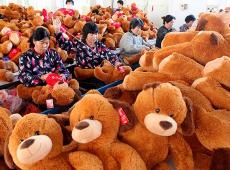
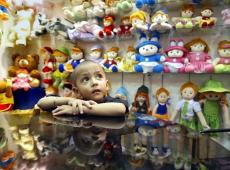
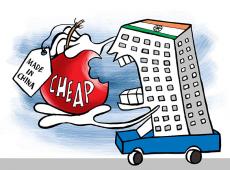
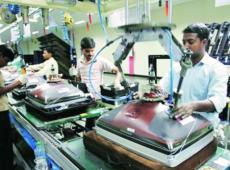
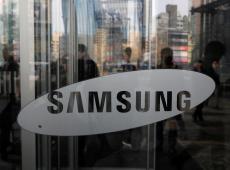
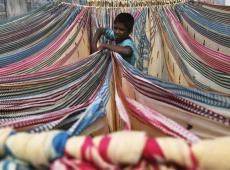
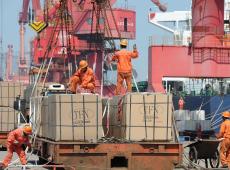
 © 2024 Rediff.com India Limited. All rights reserved.
© 2024 Rediff.com India Limited. All rights reserved.